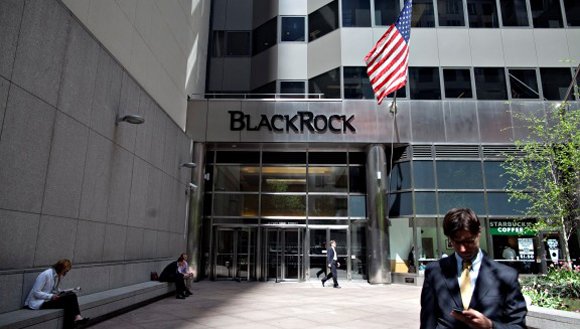BlackRock Inc. (BLK), the world's largest money manager, is seeking regulatory clearance for its iShares exchange-traded funds to follow proprietary indexes rather than those developed by third parties such as Standard & Poor's.
The application, filed by iShares yesterday with the U.S. Securities and Exchange Commission, would allow future and existing funds to use in-house indexes the firm will create. IShares, a San Francisco-based subsidiary of BlackRock, ranks as the biggest provider of index-based ETFs with some $649 billion in assets under management in more than 460 funds. (Click on the following link to see http:/www.investmentnews.com/apps/pbcs.dll/gallery?Site=CI&Date=20110705&Category=FREE&ArtNo=705009999&Ref="PH">the ETFs that advisers are eating up).
The ETF industry is becoming increasingly crowded, prompting managers to cut fees in order to attract and retain assets, according to Mark Luschini, chief investment strategist for Philadelphia-based Janney Montgomery Scott LLC. Offering funds based on proprietary indexes would help New York's BlackRock set itself apart from rivals and burnish the company's brand name, said George Simon, a securities attorney at Foley & Lardner LLP in Chicago who specializes in ETFs.
“The game here in the ETF world is to find exclusive licenses that you can offer that other people can't,” Simon said today in a telephone interview, adding that he had no specific knowledge on the iShares application. “What better way to do that than offer your own, assuming they have some intrinsic value.”
Christine Hudacko, a spokeswoman for iShares, declined to comment.
S&P, MSCI
All of the iShares index funds currently track benchmarks provided by firms such as S&P, a unit of McGraw-Hill Cos., and MSCI Inc. (MSCI), both of which are located in New York. BlackRock, which acquired IShares through its $15.2 billion purchase of Barclays Global Investors in 2009, must pay licensing fees in order for the funds to use the outside indexes.
The SPDR S&P 500 ETF Trust, managed by Boston-based State Street Corp., pays Standard & Poor's a licensing fee of .03 percent, or about three basis points, of assets, plus an annual fee of $600,000, according to the fund's most recent prospectus. That equaled $21.9 million for the year ended Sept. 30, 2010, or 28 percent of the fund's $79.2 million in annual operating expenses, including its management fee, the document shows.
BlackRock, which manages $3.7 trillion in assets, doesn't break out licensing fees for outside indexes in its filings.
Affiliate Permission
IShares' SEC application requests permission to set up funds that use indexes “created, compiled, sponsored and/or maintained” by affiliates. Existing funds would also be able to change their “respective investment objective” from seeking to track an outside index to seeking to track a BlackRock index “if deemed appropriate” by the funds' advisers, according to the application.
The SEC has limited the ability of ETFs to rely on in-house indexes out of concern that benchmarks run by affiliates might be prone to manipulation, said Kathleen Moriarty, a securities attorney at Katten Muchin Rosenman LLP in New York who specializes in ETFs. While the agency has granted firms such as WisdomTree Asset Management Inc. and Russell Investments clearance to use their own indexes at affiliated ETFs, these advisers agreed to rely on an outside agent to calculate, maintain and disseminate information on the benchmark, whereas BlackRock proposes to handle those functions internally, the application says.
“What the SEC has always been concerned about is collusion,” said Moriarty, who helped develop the SPDR S&P 500 ETF Trust (SPY), which became the first index-based exchange traded fund in 1993. “You might call your friendly index provider and say ‘I want you to change the index tomorrow so I can buy IBM.'”
Putting Up Firewalls
Florence Harmon, a spokeswoman for the SEC in Washington, declined to comment.
IShares said in its application that neither the advisers to the funds nor the internal index provider would have the ability to manipulate a benchmark, in part because the company plans to set up “firewalls.” Each BlackRock index would be rules-based, composed of equity and/or fixed-income securities, whose methodology would be clearly disclosed, according to the application.
The indexes will be created and provided by a BlackRock subsidiary or division that relies on its “own proprietary model employing intellectual property and industry expertise.” BlackRock Fund Advisors or an affiliate would pay the indexing subsidiary a licensing fee on behalf of funds that use its benchmarks.
“If I'm BlackRock and I have the granddaddy of ETFs with iShares, how do I continue to make mine stand out with so many others cramming into the market?” said Luschini at Janney Montgomery Scott. One way would be to create benchmarks, Luschini said, that “can be better replicated by an ETF.”
--Bloomberg News--







